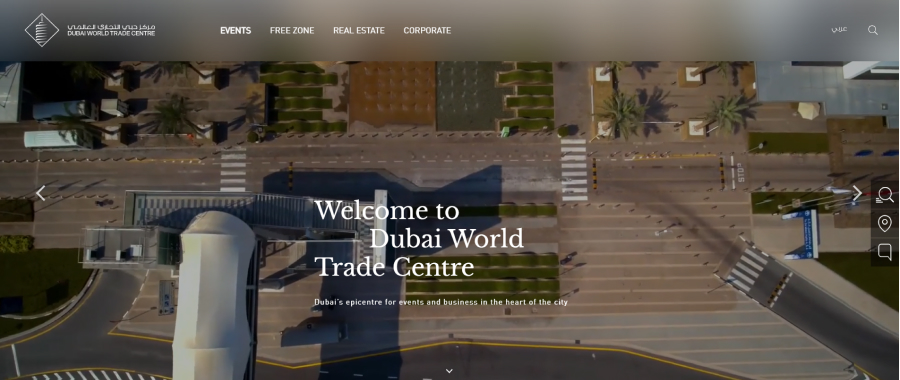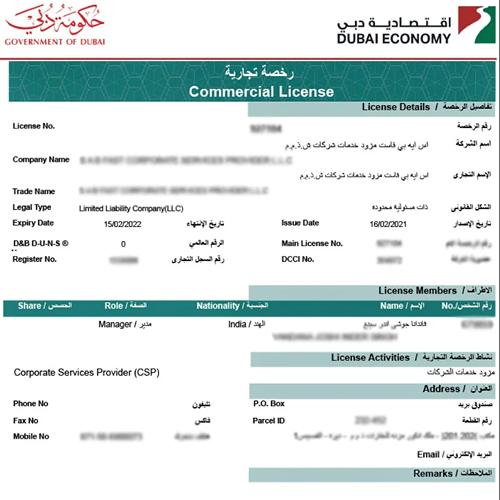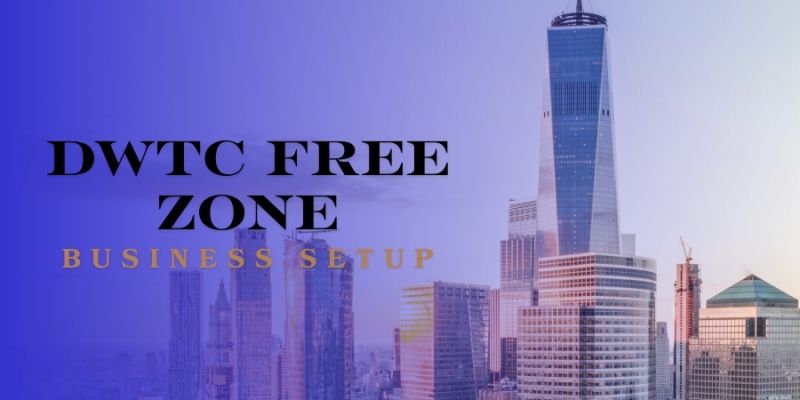Looking for a free zone in Dubai that combines prestige with practicality? The Dubai World Trade Centre Free Zone (DWTC Free Zone) might be the answer. Unlike some newer zones on the city’s outskirts, this one sits in the middle of Dubai, inside the iconic World Trade Centre complex — a name that already carries weight in global business.
What makes DWTC different is its position. You’re not far from the airport, the financial district, or the government offices you’ll inevitably need to deal with. For many international investors, being able to say “our company is based in Dubai World Trade Centre” is worth more than being in a cheaper but less recognizable location.
DWTC Free Zone isn’t the biggest or the cheapest option, and it doesn’t try to be. Instead, it focuses on credibility, speed of setup, and access to a business community that already has international reach. It’s particularly popular with firms in events, conferences, trade, and consulting — all industries that benefit from the World Trade Centre’s history as a hub for exhibitions and global networking.
Flexibility is still part of the deal. You can start small with a desk and one visa, or set up a larger operation if you’re expanding into the region. The authority has digitized much of the setup process, so getting a license doesn’t require endless paperwork or wasted weeks.

Why Choose Dubai World Trade Centre Free Zone for Business Setup?
About DWTC Free Zone
The Dubai World Trade Centre Free Zone isn’t just another business park; it’s one of the most recognizable names in the city. The World Trade Centre itself has been standing since the late 1970s, hosting exhibitions, conferences, and trade shows that brought Dubai onto the global map. When the free zone authority was created, it built on that legacy, giving companies the chance to register inside a location already known worldwide.
Being based here carries a different weight compared to registering in a newer or less central zone. If you tell partners or clients abroad that your company is located at the Dubai World Trade Centre, it instantly sounds established. That credibility factor is part of the reason international firms choose it, even when cheaper options exist elsewhere.
In short, DWTC Free Zone is about image, location, and access. You’re in the middle of the city, tied to Dubai’s international reputation, and supported by an authority with a long track record.
Business Activities Allowed in DWTC Free Zone
The scope of activities at DWTC Free Zone is wide enough to cover most service and trading businesses, with a particular emphasis on industries that naturally connect to its history as a hub for exhibitions and trade.
Standard categories include consultancy, professional services, trading, and IT-related activities. Many law firms, consultancies, and international agencies choose DWTC Free Zone because they want the prestige of the address. Trading companies also set up here, especially those that use Dubai as a regional distribution hub. The proximity to airports, ports, and downtown business areas makes that logical.
Because DWTC is so tied to the events and conference industry, it’s especially well-suited for event management companies, marketing firms, media agencies, and businesses linked to exhibitions. Being physically based in the World Trade Centre complex means you’re surrounded by opportunities to network and host clients.
There are some limits. Heavy manufacturing, large-scale industrial activity, and logistics warehousing aren’t really the focus here — zones like JAFZA, Dubai South, or RAKEZ are better for that. DWTC’s sweet spot is light services, trade, and professional firms.
Company structures are flexible: you can form a Free Zone Limited Liability Company (FZ-LLC) with individual or corporate shareholders, or open a branch of a foreign company if you’re expanding from abroad. Freelancers and one-person setups aren’t the main target market here, but small consultancies can still register without needing a huge footprint.
For entrepreneurs who care about location and reputation as much as the license itself, DWTC Free Zone ticks those boxes. You get a legitimate setup, with clear activity lists and the freedom to scale up later, but without being tied to a niche sector.
Step-by-Step DWTC Free Zone Company Formation and Registration
Setting up in the DWTC Free Zone follows a clear process. Everything runs through the authority’s eServices portal, where you choose the company type, the activity, and the office space, then upload the required documents.
Company Forms Available
DWTC officially lists four structures:
- Free Zone Establishment (FZE) — single shareholder, individual or company.
- Free Zone Company (FZCO) — two to ten shareholders, a mix of people or corporates.
- Branch of a Foreign Company — an extension of a business already incorporated abroad.
- Branch of a UAE Company — for firms that already exist onshore or in another UAE free zone.
Those forms are confirmed in the Free Zone Rules and Regulations.
Required Documents and Timeline
The paperwork depends on the setup. The authority specifies:
- Individuals: passport copy, photo, proof of residence if applicable.
- Corporate shareholders: certificate of incorporation, memorandum and articles, board resolution approving the setup, sometimes a certificate of good standing, plus passports of the beneficial owners.
- All entities: proposed name, business activity from DWTC’s list, and a lease agreement for space within the Free Zone.
Once the file is complete, the authority says license issuance usually takes two to four weeks. Branches sometimes take longer, since corporate paperwork needs extra checks.

Want to learn more about UAE business setup services?
Remote Registration Option
DWTC makes the application steps digital. Name reservation, license application, and office lease — all through the online portal. For companies abroad, some documents may still need to be notarized and attested before submission. So you can start remotely, but original documents must meet UAE legal standards before final approval.
Types of Licenses and Costs in DWTC Free Zone
The Dubai World Trade Centre Authority (DWTCA) makes it clear: you can’t operate here without a license. The license defines what your company does, and DWTC publishes the list of categories openly.
License Categories
The official options include:
- Commercial License – covers trading and general trading.
- Professional License – for service-oriented activities, consultancy, and other professional work.
- General Trading License – allows multiple unrelated trading activities under one license.
- E-commerce License – for online trading and digital platforms.
- Event Management License – tied to DWTC’s role as Dubai’s main exhibition hub.
- Family Office License – for wealth and asset management structures.
- Virtual Assets License – issued under DWTC’s regulatory framework for crypto and blockchain businesses.

Commercial License
These categories are explicitly listed by DWTC and partner consultants; they are part of the official free zone activity structure.
Costs and Fees
DWTC Free Zone doesn’t sell “visa bundles” or pre-made packages like some other zones — instead, it uses a clear, line-item structure that lets you scale according to your needs.
- Registration Fee: AED 3,000 (one-time at incorporation).
- License Fee: AED 10,000 per activity group (Commercial, Professional, etc.).
- General Trading License: AED 15,000.
- Additional Activity: AED 1,000 per extra activity.
- Share Capital Requirement: AED 300,000 for FZCOs (as per DWTC rules).
- Office Lease: Mandatory within the Dubai World Trade Centre complex; cost depends on the size and type of workspace chosen.
DWTC links visa eligibility directly to office space, not to fixed “1 visa / 2 visa” packages. The more space you lease, the higher your visa quota. This system allows companies to start with a small office and scale up later without re-registering the company.
This transparent model — fixed fees plus flexible space — is what gives DWTC Free Zone credibility with international firms.
Visa Packages
DWTC doesn’t sell “visa bundles” the way zones like IFZA or SPC do. Instead, visa eligibility is tied to the size of your leased office space. The bigger the office, the more visas your company can sponsor. That is stated directly in DWTC regulations: office space is mandatory, and visa quotas are linked to square footage.
So, the structure is straightforward: choose your license, pay the fixed fees, lease space within DWTC, and your visa quota follows from that lease.
DWTC Free Zone Corporate Tax, VAT, and Duties
The UAE introduced a federal corporate tax in 2023. The standard rate is 9% on business profits above AED 375,000. That rule applies across the country, including free zones.
DWTC Free Zone is officially listed as a Qualifying Free Zone Person (QFZP) under the Ministry of Finance framework. That means companies registered here can still benefit from 0% corporate tax on qualifying income. But it isn’t automatic — the business has to meet substance requirements and follow the rules. Income that comes from other free zones or outside the UAE usually qualifies. Income from trading with the UAE mainland normally does not, and that part may be taxed at 9%. The Federal Tax Authority publishes the exact criteria.
VAT is separate. Since 2018, the UAE has applied a 5% value-added tax. DWTC Free Zone companies are not exempt from VAT. If your annual turnover is above AED 375,000, you must register, file VAT returns, and charge VAT on taxable supplies. If turnover is below the threshold, registration is optional, but many firms still register to recover VAT on costs.
Customs duties follow the general UAE model. Goods that stay inside the free zone or are re-exported abroad are exempt from import duties. The moment goods enter the UAE mainland, standard customs rules apply — usually a 5% duty. This is consistent with how all free zones operate.
So, in practice:
- Profits may qualify for 0% corporate tax, but only under the QFZ rules.
- VAT at 5% applies once you hit the turnover threshold.
- Customs duty is avoided only if goods remain in the free zone or go abroad.
DWTC Free Zone Company Formation: Who Should (and Shouldn’t) Choose This Free Zone?
The Dubai World Trade Centre Free Zone doesn’t play in the same league as the new budget zones scattered outside the city. It’s right in the centre of Dubai, inside one of the city’s most iconic landmarks, and that alone changes the type of companies that are drawn to it. This isn’t about saving every dirham; it’s about reputation, location, and being tied to the World Trade Centre brand that has hosted exhibitions and global events for decades.
Professional service firms are the obvious match. Legal practices, management consultancies, financial advisors — they’re all comfortable here. Why? Because the free zone officially issues professional and consultancy licenses, and when you tell a client abroad your office is in the World Trade Centre, it carries weight.
Trading companies fit too. DWTC has both commercial and general trading licenses in its catalogue. Add the central location — close to Dubai International Airport, within reach of Jebel Ali Port, and just down the road from regulators and banks — and it makes sense for importers and exporters who want visibility and speed.
Event and exhibition-linked businesses almost feel tailor-made for this free zone. DWTC has long been the city’s hub for major events, so the event management license isn’t just paperwork — it ties directly to what already happens on-site.
E-commerce and digital firms are also covered. DWTC lists e-commerce as a category, so online platforms can base themselves here without creative interpretations of the rules. And on top of that, the free zone has made room for family offices and virtual asset companies, both license types written into its framework.
Big industry is out. DWTC is not designed for heavy manufacturing, warehouses, or factory setups. The focus is on offices, not industrial plots.
Freelancers don’t have a direct path here either. Unlike zones that sell one-person “freelancer permits,” DWTC doesn’t offer that. A small consultancy can register, yes, but it’s not pitched at individual freelancers.
And if your business mainly sells into the UAE mainland? Then you lose the 0% corporate tax advantage. Any local revenue falls under the federal 9% tax.
In short, DWTC Free Zone is for firms that want to anchor themselves in Dubai’s business core. Strong on credibility and location. Not built for factories or bargain hunters.

Conclusion
The Dubai World Trade Centre Free Zone stands out because of where it is and what it represents. Most free zones in the UAE promote affordability, industrial land, or a niche like media or education. DWTC doesn’t need to. It’s anchored inside one of the most visible addresses in Dubai, the same World Trade Centre that’s been hosting exhibitions and global summits since the 1970s. That history makes it different.
For companies that care about image and access, this is a strong option. A professional license here is not just paperwork — it signals credibility. Trading companies also benefit, because DWTC issues both commercial and general trading licenses, and the zone sits close to airports, ports, banks, and regulators. Event management firms are in their element too. The free zone officially includes event licenses, and you’re literally based inside Dubai’s exhibition hub. Even e-commerce operators, family offices, and firms in virtual assets have a home here, since these license types are built into DWTC’s framework.
Taxes follow the federal system: 0% corporate tax on qualifying income if you meet the free zone conditions, 9% on mainland revenue, 5% VAT once you cross the turnover threshold, and customs duties only if goods leave the free zone and enter the local market. Nothing hidden, nothing unusual compared to other Qualifying Free Zones.
It isn’t perfect for everyone. Heavy manufacturers won’t find factories here. Freelancers looking for the cheapest one-man setup will not find a permit option. Businesses that mainly serve UAE mainland clients will have to plan around the 9% corporate tax.
So, where does it leave DWTC? It’s a free zone for companies that want to put themselves in the centre of Dubai’s business life. Strong address, stable regulation, and a license structure that covers the big categories: services, trade, events, digital, and finance.
For many firms, that combination — location plus credibility — is worth more than a lower setup cost somewhere on the edge of the city.
You don’t have to be in Dubai to start. The authority runs an online system where you choose the name, pick the activities, and upload documents. In some cases, originals still need notarization or embassy stamps, but the first steps can all be handled from abroad.
The official schedule is straightforward: fixed fees for registration and licensing. The authority itself doesn’t split payments. Some private consultants advertise installment plans, but that’s their service, not DWTC’s policy.
Yes. Like any UAE free zone license, you can import and export worldwide. The only point to remember is customs: bring goods into the mainland and the standard duty applies.
Most don’t. Professional, trading, e-commerce, and event management — these are routine. Activities like virtual assets fall under specific UAE regulations, so extra clearance is required there.
